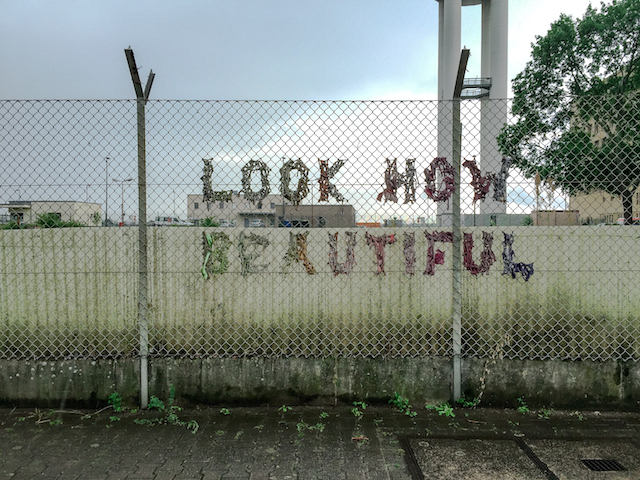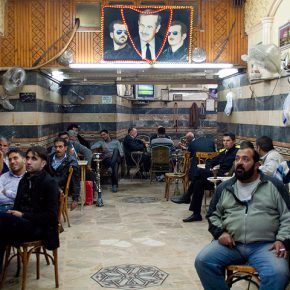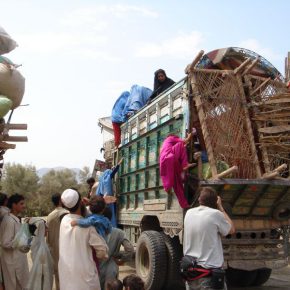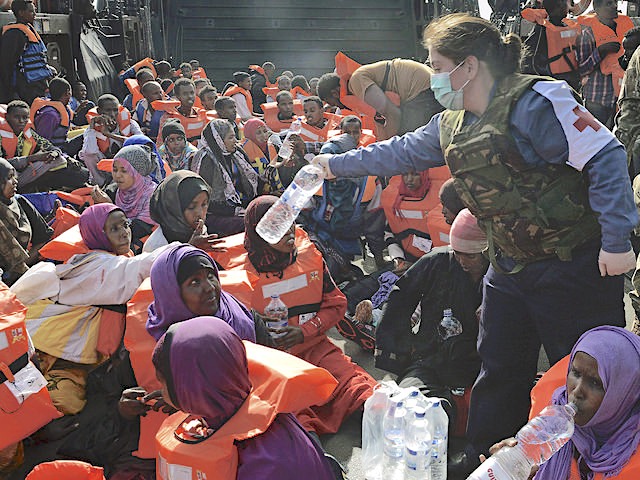When Angel Merkel opened Germany’s borders last year, she performed an about face few could have predicted. Having just overseen the defeat of Syriza, in its quest to defy the Troika’s debt repayment demands, her policies were being heralded as a return to Germany’s dark past. Not quite Third Reich, but flirting with historical callousness.
Did Merkel’s handling of the refugee crisis rescue Germany’s international reputation? At the time, yes. Taking in 1.5 five million Middle Easterners, knowing very well it would drive right-wing parties in the polls, took a lot of guts, as it was risky then, and remains an equal liability now.
Nonetheless, it was a gesture equally aimed at distancing Germany from its Nazi past. In that, Merkel could not have been more successful.
Not only was the country opened to refugees fleeing genocidal wars, but they were Muslims, not too dissimilar, in racist ideology, to Jews. Given how high Islamophobia was in the polls at that point (in Germany, surveys have repeatedly demonstrated that it’s been rising the last decade,) the decision was a highly controversial one to make.
That doesn’t mean, however, that Merkel’s refugee strategy was welcome by everyone on the left. Most recently, Sahra Wagenknecht, the half-Iranian co-leader of the country’s largest opposition party, Die Linke, attacked it, to much controversy within its pro-refugee ranks. While some accused Wagenknecht of trolling for populist AfD voters, other party members supported her.
Clearly, Merkel’s gesture was the right one. However, the implementation remains subject to question. The flyer photographed below comes at the subject from the point of view of the refugee solidarity movement, and anti-border activists focused on asylum seeker housing at Berlin’s Tempelhof Airport. A translation follows.

Idomeni, Konik, Pehlivankoy, Moria, Calais, Berlin Tempelhof – we are fighting racist segregation everywhere!!!
Rally against segregation and deportation
26 June, 4 o’clock at Tempelhof field, near the main entrance by the east end of what was the northern runway
Eight months have passed since a “shelter” was built in the hangars of the old Tempelhof airport. The name disguises the fact that people live under unacceptable conditions there, in isolation from other people for many months. The system is maintained by the preservation of social divisions, along the lines of class, nationality and gender, and are played off of one another. Operating company Tamaja GmbH benefits from the plight of the residents and the precarious situation of workers, gaining €1,000 a month per person from LaGeSo for providing 2m2 of living space and food that no-one likes.
Under the pretext of concern for the affected people, the Senate in January went as far as to overturn the Tempelhof Field Law. The plan is to provide housing for about 8,000 people, which the government offered through a publicly-adopted law. It is more obvious that it is in governmental interest to fill the area with luxury housing instead. On the one hand is the fact that there are fewer people in the hangars and expansion plans have so far not been implemented much. On the other, there is the danger that even more people will be spat out by the registration machine. How the situation develops is dependent on the deportation policy of the EU. The EU external borders have been patrolled heavily in recent months, meaning fewer people are arriving in Berlin. But even if the hangars remained empty in the future and anyone who is living there could stay there, it would not be the end of racist segregation. Segregation and deportation is going on, the borders don’t solve that, people fleeing are herded by the high border fences into places like Moria (Lesbos), Konik (Montenegro), Calais, Tempelhof or back to Turkey, to Pehlivankoy/Kirklareli, from where they will be deported by the Turkish on behalf of the EU.
Unlike the overtly racist policies of colonialism, borders have become fluid and movable within the neoliberal capitalistic world. Repression does not stop, complex mechanisms mean it is refined and intensified. While European countries exploit people and warmonger, they present themselves as superior and the shining beacon of civilisation.
On 26 June at 4 o’clock we want to draw attention to the violent policies of supra(national) and social boundaries in places like the Tempelhof hangars and other places. Another focus will be the exploitation of refugees by private companies.
Come in numbers and support the cause!
Translated from the German by Sam Morgan. Photographs courtesy of Joel Schalit.





